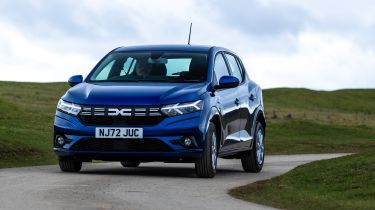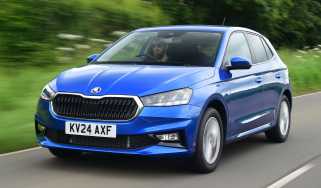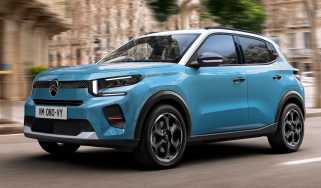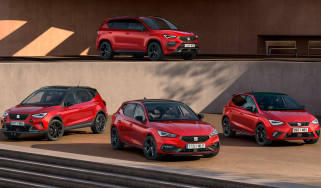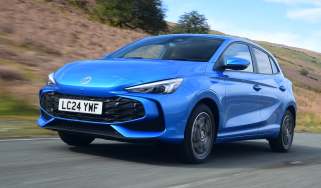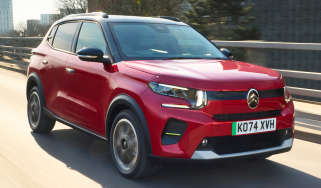Dacia Sandero hatchback – Engines, drive & performance
Choose the TCe engine and the Sandero is quick enough and easy to drive
The fact the latest Sandero is based on the lighter, stiffer underpinnings of the current Clio is a great start, and the Sandero also now has a noticeably wider, and more athletic stance. Its steering is fairly light, but accurate enough to ensure the car doesn't wander along the road. This is an important factor for town driving, where the Sandero is likely to spend most of its time. It has a fairly tight 10.5-metre turning circle – less than a Citroen C3.
The 90 TCe's standard manual gearbox is good to use, making it easy to keep the engine in the strongest part of the rev range, even if the clutch feels slightly spongy. Admittedly, it lacks the precision of more expensive rivals but this will be a minor compromise for most drivers.
The new Sandero is better to drive than ever before, with the chassis making it calm and effortless to drive. During our test, and despite driving over plenty of potholes and drain covers, the ride comfort proved this is a car aimed more at soaking up bumps than posting lap times, although it can be slightly bouncy at times.
There's a fair amount of body lean in corners but the Sandero is generally good enough to drive, unless you up the pace on a twisty back road. On faster roads, the 89bhp petrol engine is powerful enough to make easy progress and means the Sandero is a competent motorway cruiser.
Dacia Sandero petrol engines
The 1.0-litre 89bhp TCe 90 engine has a turbocharger to improve its peak figure and pulling power compared with the discontinued SCe engine. While the SCe earned Dacia the accolade of the UK's cheapest new car, the TCe is much easier to live with, because its performance advantage not only makes it faster, but also more relaxing to drive. The SCe took 16.7 seconds to get from 0-62mph and struggled to get up to speed on motorways and dual carriageways.
With a 0-62mph time of 11.7 seconds, the TCe is capable of keeping up with traffic without much fuss, doing its best work between 1,750rpm and 3,000rpm. We found it felt very keen and responsive, and preferred driving it with the 'Eco' button pressed. This softens the throttle response slightly, not only improving fuel economy but also making it easier to accelerate smoothly. It was previously available with a CVT automatic gearbox, but this was discontinued in mid 2023.

